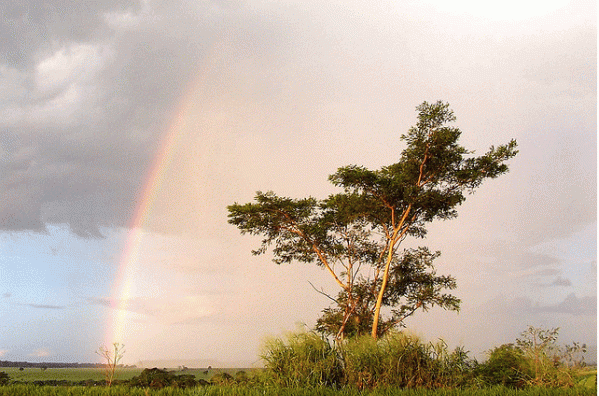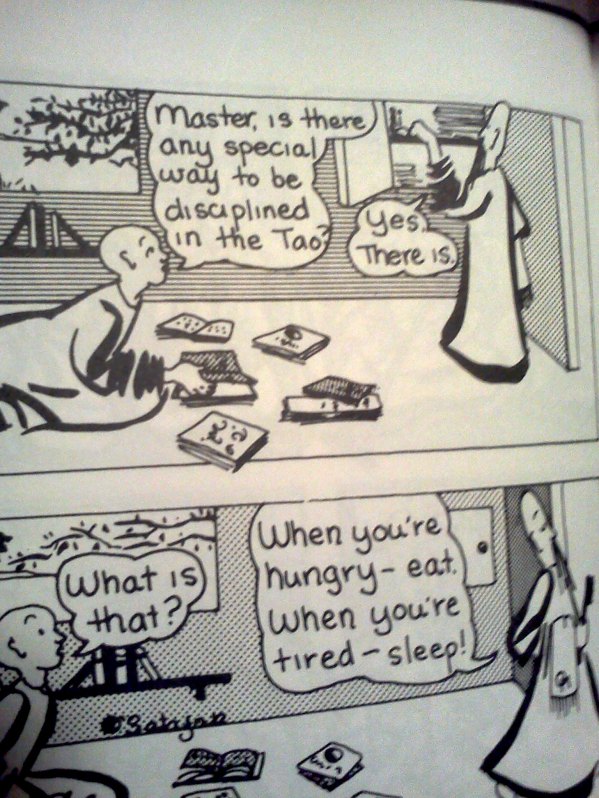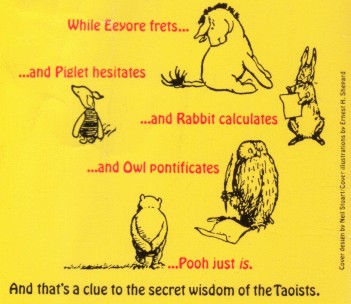Home » Zen or Dhyaan
Category Archives: Zen or Dhyaan
The Zen Master and the Samurai
A Zen Master was sitting in SATSANG, his disciples were there, and a very proud man, a warrior, a samurai, came to see him. The samurai was a very famous one, well-known all over the country, but looking at the Master, looking at the beauty of the Master and the grace of the moment, he suddenly felt inferior. Maybe he had come with an unconscious desire to prove his superiority. He said to the Master ‘Why am I feeling inferior? Just a moment before everything was okay. As I entered into your court suddenly I felt inferior. I have never felt like that. My hands are shaking. I am a warrior, I have faced death many times, and I have never felt any fear — why am I feeling frightened?’

The Master said ‘You wait. When everybody has gone, I will answer.’ People continued coming, and the man was getting tired more and more tired, and by the evening the room was empty, there was nobody, and the samurai said ‘Now, can you answer it?’ And the Master said ‘Now, come out.’
A full moon night — the moon was just rising on the horizon… And he said ‘Look at these trees, this tree high in the sky and this small tree. They both have existed by the side of my window for years, and there has never been any problem, the smaller tree has never said “Why do I feel inferior before you?” to the big tree. How is it possible? This tree is small, and that tree is big, and I have never heard any whisper.’ The samurai said ‘Because they can’t compare.’ The Master said ‘Then you need not ask me; you know the answer.’
Comparison brings inferiority, superiority. When you don’t compare, all inferiority, all superiority, disappear. Then you are, you are simply there. A small bush or a big high tree — it doesn’t matter; you are yourself. You are needed. A grass leaf is needed as much as the biggest star. Without the grass leaf God will be less than he is. This sound of the cuckoo is needed as much as any Buddha; the world will be less, will be less rich if this cuckoo disappears.
Just look around. All is needed, and everything fits together. It is an organic unity: nobody is higher and nobody is lower, nobody superior, nobody inferior. Everybody is incomparably unique.
The entire book for free at ‘Sun Rises in the Evening‘, by Osho.
Shut-up and listen
When the meaning of words are grasped, the words are forgotten. Find me the man who knows no words, for he is the one I’d like to talk to.
– Chuang Tzu

Nengemishō 拈花微笑
When the Buddha was growing old he convened his disciples for an important discourse. And when they gathered and sat down silently, reverently waiting to hear their aging Master speak, the Buddha arose, came forward on the flower-decked platform, looked over his audience of disciples and monks, then bent down and picked up a flower which he raised to the level of his eyes.
Then, without uttering a word, he returned to his seat. His followers looked at each other in bewilderment, not understanding the meaning of his silence. Only the venerable Mahakasyapa serenely smiled at the Master. And the Master smiled back at him and wordlessly bequeathed to him the spiritual meaning of his wordless sermon.
And that, according to legend, was the moment Zen was born.  Continue reading
Continue reading
What and Which and Who
How can you get very far, If you don’t know Who You Are? How can you do what you ought, If you don’t know What You’ve Got? And if you don’t know Which To Do Of all the things in front of you, Then what you’ll have when you are through Is just a mess without a clue Of all the best that can come true If you know What and Which and Who.
Benjamin Hoff
Source: The Tao of Pooh
Svashva or Shiva, the master of dogs.
Shiva is but a corpse, a shava. Who or what, then, is his enlivening vowel sound I, if not the goddess Shakti, the supreme representative of movement and life…?

Nothing by No One



Staying on the path

Yathā-Bhūta and the Steak

atha-bhutam-nana-dassanamyatha-bhuta-nana-dassanam, seeing things as they are, not as they appear to be. That is, understanding the true nature of anicca (impermanence), dukkha (suffering) and anatta (essencelessness) in all things. This realisation leads to the ultimate truth of nibbana. It may also be described as pakarena janati’ti pannapakarena janati ti panna-because it is understood through different angles it is panna. The Visuddhimagga elaborates on this explaining that the characteristic of panna is to penetrate the true nature of things. Its function is to dispel the darkness of ignorance, and prevent one from becoming bewildered by its manifestation. Its immediate cause is concentration (samadhi). Hence the words ‘He whose mind is concentrated knows and sees things according to reality’.
Doing Nothing
Before he became a hermit, Zarathud was a young Priest, and took great delight in making fools of his opponents in front of his followers.
One day Zarathud took his students to a pleasant pasture and there he confronted The Sacred Chao while She was contentedly grazing.
“Tell me, you dumb beast,” demanded the Priest in his commanding voice, “why don’t you do something worthwhile? What is your Purpose in Life, anyway?”
Munching the tasty grass, The Sacred Chao replied “MU”. (The Chinese ideogram for NO-THING.)

